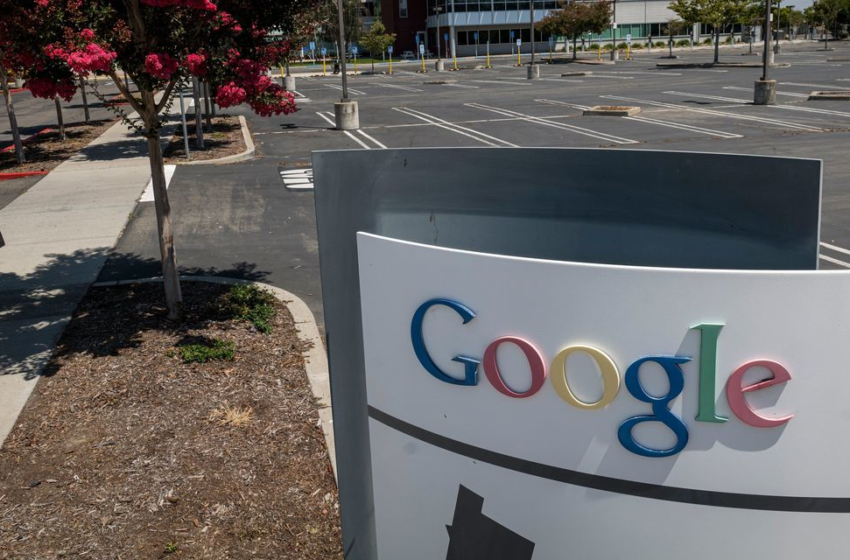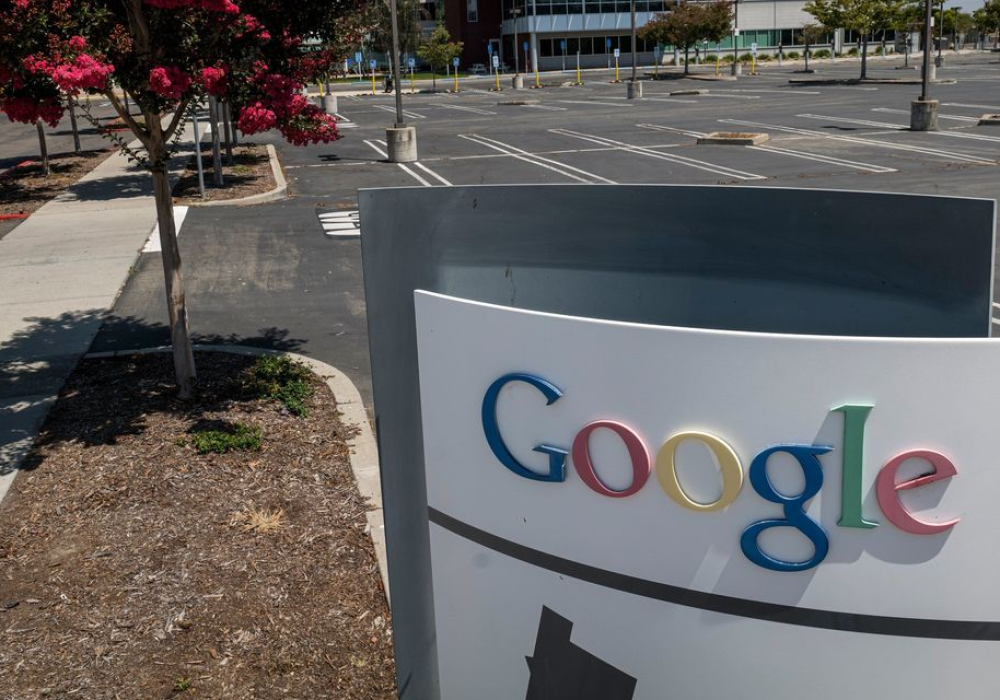Google misled publishers and advertisers for years about the pricing and processes of its ad auctions, creating secret programs that deflated sales for some companies while increasing prices for buyers, according to newly unredacted allegations and details in a lawsuit by state attorneys general.
Meanwhile, Google pocketed the difference between what it told publishers and advertisers that an ad cost and used the pool of money to manipulate future auctions to expand its digital monopoly, the newly unredacted complaint alleges. The documents cite internal correspondence in which Google employees said some of these practices amounted to growing its business through “insider information.”
The unredacted filing on Friday in the U.S. District Court of the Southern District of New York came after a federal judge ruled this past week that an amended complaint filed last year could be unsealed.
The lawsuit was first filed in December 2020, with many sections of the complaint redacted. Since then, the redactions have been stripped away in a series of rulings, providing fresh details about the states’ argument that Google runs a monopoly that harmed ad-industry competitors and publishers.
Google, a unit of
Alphabet Inc.,
said it intends to file a motion to dismiss it next week. A company spokesman said the lawsuit was “full of inaccuracies and lacks legal merit.” He added, “our advertising technologies help websites and apps fund their content, and enable small businesses to reach customers around the world. There is vigorous competition in online advertising.”
The way ads are bought and sold on the internet is a complex process in which Google plays an outsize role as both a participant in and manager of the auctions that determine sales. Google owns the dominant tool at every link in the chain between online publishers and advertisers, giving it unique power over the monetization of digital content. It also owns key platforms for reaching consumers, such as YouTube. As a result, rivals have complained that the tech giant tilted the market in its own favor, allowing it to win more bids and foreclose competition. The amended complaint and its unredacted details aim to illuminate how that works in practice.
Led by Texas Attorney General
Ken Paxton
and joined by more than a dozen states, the suit alleges that Google’s business practices inflate advertising costs, which brands pass on to consumers in higher-priced products. It also alleges that Google suppresses competition from rival exchanges and limits websites’ options for ad delivery, drawing on the company’s internal comparison of itself to a bank that also owns the New York Stock Exchange.
“Our amended complaint details how Google manipulates the online display auction to punish publishers and blatantly lies to them about how they run the auction,” said Mr. Paxton.
The suit is complemented by a separate antitrust case by the U.S. Justice Department and more than three dozen state attorneys general focused on Google’s search services. The cases are set for trial in 2023 or later.
Meanwhile, a dozen Republicans and Democrats in the Senate are advancing a bill that would treat Google’s search engine like a railroad operator, making it illegal for it to advantage its own products and services at the expense of other businesses that rely on the platforms. Digital advertising analysts say that if passed it could force Google to spin off or sell its ad tech business formerly known as DoubleClick Inc.
In addition to detailing some of Google’s programs, the new complaint says that Alphabet and Google Chief Executive
Sundar Pichai
and Meta Platforms Inc. Chief Executive
signed off on a 2018 business agreement that allegedly guaranteed Meta subsidiary Facebook would both bid in—and win—a fixed percentage of ad auctions. It has previously been reported that the agreement was signed by Google Chief Business Officer Philipp Schindler and Facebook Chief Operating Officer
Sheryl Sandberg.
State attorneys have argued it was an illegal price-fixing agreement. The companies have said it was above board.
The newly unredacted details provide more information about a series of programs that Google ran named Project Bernanke, Reserve Price Optimization and Dynamic Revenue Share. The Bernanke program has been previously reported on, but the newly unredacted complaint reveals that it had three versions between 2010 and 2019.
In the first version, Google misled publishers and advertisers to believe they were participating in a “second-price auction,” where the winner pays the price of the second-highest bid, when using its advertising exchange, AdX, according to allegations from the complaint. However, under Google’s Bernanke program, AdX would at times knock out the second-highest bid, allowing the third-highest bid to win, thus depriving the publisher of revenue, according to the complaint. At the same time, Google would charge advertisers the price of the second-highest bid and pocket the difference, the complaint said.
Google pooled the advertisers’ overpayments and used the money to manipulate auctions on its systems, at times boosting bids from advertisers bidding through its ad-buying tools to ensure it would win an auction it otherwise wouldn’t have, the complaint said.
SHARE YOUR THOUGHTS
How do you think federal regulation of big tech companies will change in 2022? Join the conversation below.
It affected billions of ad impressions sold each month and Google’s research found that it dropped publishers’ revenue by as much as 40%, according to the complaint. “Bernanke is powerful,” one Google employee said, according to internal company communications quoted in the complaint.
A second version of the program, dubbed Global Bernanke, used the pool of money Google gathered to inflate only the bids belonging to Google’s ad-buying tool for small advertisers, originally known as AdWords and now called Google Ads, when these bids were poised to otherwise lose auctions on Google’s exchange, the complaint alleges.
A third version of the program, called Bell, penalized publishers that didn’t give Google what the complaint calls “preferential access” to their ad inventory by redirecting the pool of money it collected to those that did, the complaint alleges. Publishers were eligible for those funds only if they participated in Google programs such as Dynamic Allocation, which gave Google’s AdX the right of first refusal against competing exchanges in auctions, according to the complaint.
A Google spokesman said Bernanke was implemented to “optimize advertiser bids” and was among improvements made to increase competition and make ads more effective for businesses. He added that the program didn’t artificially increase prices and denied allegations that Google “manipulated” its ad exchange.
In the Reserve Price Optimization program, Google used historical data about an advertiser’s previous bids to set “floors,” or minimum prices, for that advertiser that resulted in advertisers paying higher prices, the complaint alleges. In one newly unredacted company communication, Google employees said that the program should be based on “smarts and tech” rather than “insider information.”
The new details further suggest that Google employees were wary of the dynamics caused by another program, Dynamic Revenue Share, which changed the fee that Google’s ad exchange collected to help Google’s tools win more auctions than they would have otherwise. Google did this only after being able to see what all its rivals had bid, due to its dominance of the publisher ad server market, the complaint alleges.
The program “makes the auction untruthful as we determine the AdX revshare after seeing buyers’ bids,” wrote one Google employee, in newly unredacted sections of the complaint.
A Google spokesman said that these programs don’t manipulate auctions and are designed to help publishers maximize ad sales.
Write to Tripp Mickle at Tripp.Mickle@wsj.com and Keach Hagey at keach.hagey@wsj.com
Copyright ©2022 Dow Jones & Company, Inc. All Rights Reserved. 87990cbe856818d5eddac44c7b1cdeb8










